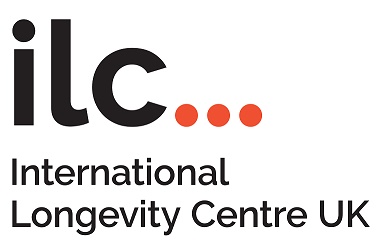Patient & Public Involvement
Dementia Care Community (DCC)
In terms of public, patient and professional engagement and involvement (PPPI), we created the Dementia Care Community (DCC). This brought together a total of 97 people during the programme with around one third, people living with dementia, one third, family carers and one third, relevant professionals (health and social care, voluntary and housing organisations), to help make sure our research was based on real life experiences of service users and service providers. Sixty seven DCC participants were involved for the entire research period. The DCC has had significant involvement in all of our workstreams.
The creation and continued involvement of our mixed stakeholder community, the DCC, has been fundamental to ensure that the PriDem research has remained grounded in lived experiences of dementia; through the involvement of people living with dementia, family carers and professionals from a range of health, social care and third sector organisations. Overall, there have been over 60 members of the DCC continuously involved over the entire course of the programme. The community represents a broad range of personal and professional experiences bringing rich and varied expert by experience perspectives to the research. This includes members who have experienced significant changes throughout their involvement, for example care transitions, current carers becoming bereaved carers, or professionals with additional personal experience. The DCC have been very positive about their participation in research, explaining how it has helped them to learn more about dementia, obtain peer support and gain new confidence and skills around research and advocacy. One member in particular has gone on to have a significant public profile, campaigning with the Alzheimer’s Society and working with the BBC and Channel 4 to raise awareness of the need for post diagnostic support.
Essential expert by experience perspectives
Throughout this study, the DCC have provided their expert input and advice on a range of topics. This included: prioritising study outcomes; intervention development and implementation; recruitment approach; study progress; reviewing and refining data collection criteria; related and future research; dissemination; and supporting PriDem PhD studies. Most of this input has been achieved through meetings with some additional work via email. In total 27 meetings with the DCC, mainly directly supporting PriDem research with the exception of four meetings to support projects related to PriDem. These additional meetings have directly benefited the DCC, as members have also been recruited via these projects, as well as sharing their expertise on our related projects.
In person and remote participation
The DCC members valued face to face meetings where possible, however, during the pandemic, meetings were delivered remotely via Zoom, enabling continued essential and valuable consultation, engagement and involvement. Whilst not preferrable for all, remote meetings proved beneficial for some participants including health and social care professionals, enabling them to attend more easily. In addition, DCC members engaged via email as a way of providing feedback on key documents.
Outputs and future plans
Outputs relating to DCC involvement include a journal publication and presentations at local and national conferences. Future plans include continuing to involve the DCC in contributing to the co-production of accessible summaries of research outputs and developing routes for dissemination.
PPAB
The Patient/Public Programme Advisory Board (PPAB) acted as an external monitor for the study. They meet once a year to oversee progress in terms of milestones and deliverables, and acted as critical ‘friends’ to the DCC. All members of the PPAB have personal experience of caring for relatives with dementia. The PPAB is chaired by the programme lead, Louise Robinson, and PPI representative, Sue Tucker.









